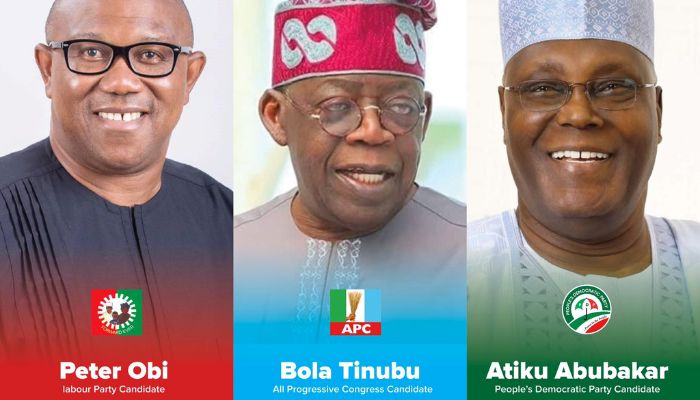If there is a tie during the 2023 presidential election, a run-off election would be held to choose an outright winner, according to the Independent National Electoral Commission (INEC).
According to INEC, the person with the most votes and the person with the spread—not necessarily the person with the second-most votes—will compete in the second election.
Festus Okoye, INEC national commissioner and chairman of the commission’s information and voter education committee, made this point on Monday in Lagos during a two-day media capacity-building workshop on the commission’s advancements, innovations, plans for the general elections of 2023, and important concerns in the Electoral Act 2022.
2023 Elections Will Be Different From 2019 Elections – INEC To Nigerians
According to the Electoral Act of 2022 and the 1999 Constitution, the next president of Nigeria must receive the most votes and the necessary two-thirds majority in each of the 36 states that make up the nation (as amended).
He said, “By section 134 of the Constitution where there are more than two presidential candidates, for a presidential candidate to be declared duly elected, he must secure the highest number of votes cast at the election; and not less than a quarter of the votes cast at the election in each of at least two-thirds of all the States in the Federation and the Federal Capital Territory.
Not all of the candidates and political parties from the first election would run in the second election, the INEC spokeswoman stated.
He stated that just two candidates—the one with the most votes and the candidate with the greatest margin of victory—would compete in the run-off election.
EDO PDP Crisis: Obaseki’s Camp Reacts As INEC Recognises Orbih’s Faction
He continued, “The second is the one amongst the remaining candidates who have a majority of votes in the highest number of States, so however that where there is more than one candidate with a majority of the votes in the highest number of States, the candidate amongst them with the highest total votes cast at the election shall be the second candidate for election.”
Okoye continued by stating that in order to be considered the victor of the election, a candidate for governor must also receive the highest number of votes and the necessary margin in the state’s local governments.
He said: “In a governorship contest, the candidate must secure the highest number of votes cast and quarters of the votes cast in two-thirds of all the Local Government Areas of the State.
“In the event of a candidate not securing this threshold, the Commission must conduct a second election. Not all the 18 registered political parties sponsoring candidates will participate in this second election.”
When asked about alternative strategies, Okoye noted that technology would be used to assure the success of the elections in 2023. He made specific mention of the fact that the commission would implement the Smart Card Readers/Bimodal Voter Accreditation System (BVAS).
According to him, “It must be appreciated from the outset that Smart Card Reader Machine or simply Card Reader (SCRM for short), is an innovation in our Electoral Process. It was not known, or rather, it was never put into practice before in our political development.
“From my general reading and my comprehension of the literature surrounding the Smart Card Reader Machine, it appears to me and, put in a concise form, that the Smart Card Reader Machine is a technological device set up to authenticate and verify, on election day a permanent voter’s card (PVC) issued by INEC.
2023 Elections: INEC Denies Disenfranchising 7 Million Nigerians
“Smart Card Reader Machine is designed to read information contained in the embedded chip of the Permanent Voter’s Card (PVC) issued by INEC to verify the authenticity of the PVC and also carry out a verification of the intending voter by matching the biometrics contained from the voter on the spot with the ones stored on the PVC.
“INEC’s motive, which became public in introducing the technologically-based device, barring any technical mishap, breakdown or malfunction, was to ensure a credible, transparent, free and fair election for the country.”
Follow us on Facebook
Post Disclaimer
The opinions, beliefs and viewpoints expressed by the author and forum participants on this website do not necessarily reflect the opinions, beliefs and viewpoints of Anaedo Online or official policies of the Anaedo Online.

